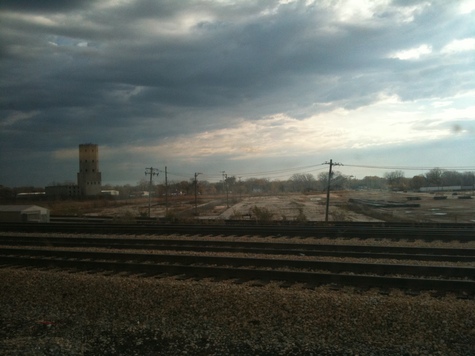| « Why the Citizens United Decision is Probably Right, and Good for the Left | Chicagoist Reporting on Front Group » |
Social Services Mon Jan 25 2010
Poverty Rates Spiking in Chicago Suburbs

U.S. poverty is on the rise in a somewhat unlikely place -- the suburbs, areas people stereotypically associate with backyards, white-picket fences and the American Dream, according to a report recently released by the Brookings Institution.
According to the report, from 2000 to 2008, the number of poor increased by 25 percent in the suburbs, almost five times more than poverty rates in cities. As a result, there are now 1.5 million more poor people living in the suburbs than in "primary" cities. Read the full report -- "The Suburbanization of Poverty: Trends in Metropolitan America, 2000 to 2008" -- here (pdf).
Elizabeth Kneebone, a Brookings senior research analyst and co-author of the report, had this to say in a statement:
Since the start of this decade, two economic downturns have translated into significant increases in poverty across the country, but not all communities have borne the brunt of these increases equally. Suburbs have seen the greatest growth by far in the number of poor residents, and this trend toward the 'suburbanization' of poverty is only likely to continue in the wake of the most recent recession....Though urban and rural poverty remain an ongoing challenge, policymakers, service providers, and other stakeholders must adapt their strategies to address the needs of a poor population that is increasingly suburban. The shifting geography of American poverty underscores the need for policies that foster balanced growth across metropolitan regions and labor markets, and that link up affordable housing, transit, workforce, and economic development strategies to help connect low-income residents to job opportunities.
The report found that Midwestern metro areas with shattered auto manufacturing plants, such as Grand Rapids, Mich., and Youngstown, Ohio, were hit the hardest.
The report defined the poverty line as a family of four "living" on $21,834 a year -- and according to the report, some 13.2 percent of Americans fell into that category by 2008.
Read Metro area profiles here (pdf). According to Chicago's metro profile, in 2008, 535,707 people were living in poverty in the suburbs -- a 2.1 increase from 2000. By comparison, poverty in primary cities in the same region increased by 0.8 percent.
And then some more bad news:
"Based on increases in unemployment throughout 2009, we project that the Chicago-Naperville--Joliet, IL-IN-WI metro area may experience an increase in its poverty rate of approximately 2.3 percentage points."
The Tribune covered the story in a front page report. Also, as Progress Illinois points out, most of the ghostly factory suburbs in Chicago's southeast side, including Dolton, Ford Heights and Harvey (pictured above from the train tracks), are struggling the most.











